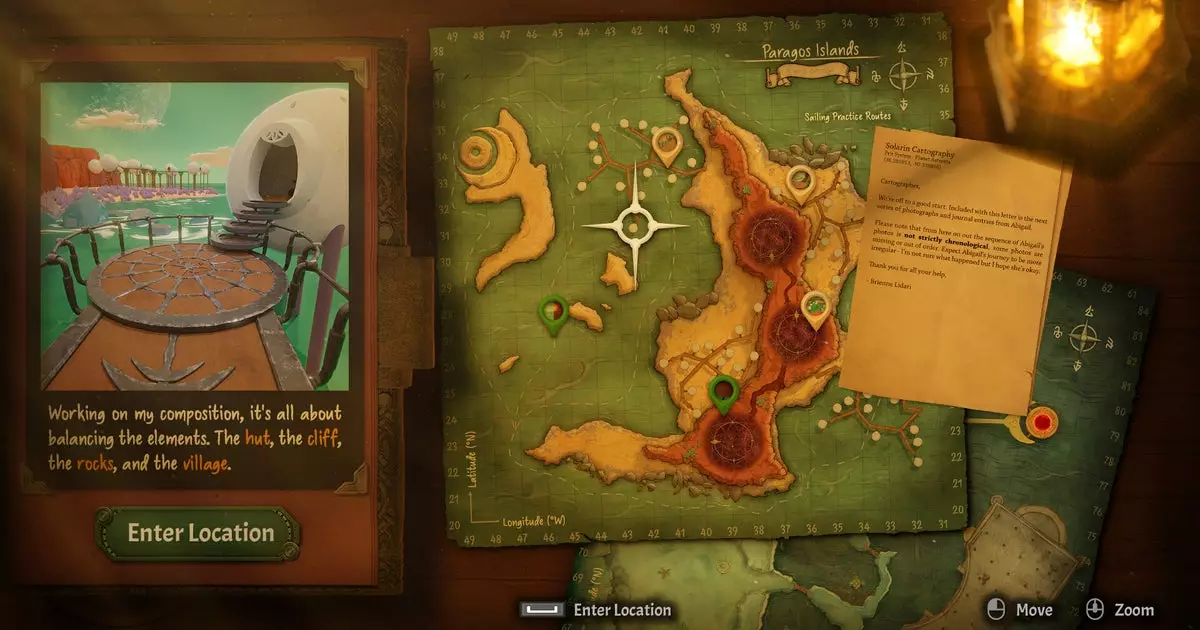Locator is an innovative blend of detective work and cartography set in an alien landscape, appealing to fans of titles like Obra Dinn and similarly intricate puzzle games. Players step into the role of an interstellar cartographer, whose primary mission is to locate a missing archaeologist, Abigail Lidari, through mesmerizing alien environments. This distinctive concept elevates the game beyond mere exploration, inviting participants to engage deeply with the narrative of Abigail’s journey.
The Mechanics of Discovery
Gameplay begins with players delving into an array of photographs and journal entries left by Abigail. This process resembles the popular geography game Geoguessr, wherein users rely on visual cues to determine locations. As players compare images with Abigail’s notes to mark her last known whereabouts on stunning maps, the game cleverly evolves from straightforward landmark identification to a more complex exercise in deduction. Each correctly placed pin allows players to unlock the next clue while piecing together the mysterious circumstances of Abigail’s disappearance.
One notable aspect of Locator is its focus on perspective. Players are not simply tracking locations; they are invited to step into Abigail’s shoes. Each puzzle reflects the unique lens through which she viewed her surroundings. An early challenge involves locating peculiar statues in an ancient alien tomb, illustrating how personal observations can shape one’s understanding of a place. The whimsical names and sketches Abigail provides for these statues, such as “Milton” and “Orville,” add a layer of humor and humanity to the game, revealing the psychological effects of isolation in an unfamiliar environment.
Locator excels in its ability to incorporate thematic depth into the gameplay. The notion of the “cartographer’s folly,” which includes fictitious entries on maps, highlights the ambivalence inherent in representation. Players are reminded of the famous adage by Alfred Korzybski: “the map is not the territory.” This mantra serves as a critical lens through which to view the game, pushing participants to reflect upon the disparity between perception and reality.
While navigating through the game world, players are also engaging in an exercise of empathy. Throughout their journey to locate Abigail, they are only equipped with a curated collection of her experiences. This limitation encourages gamers to foster a deeper connection with her character, navigating through her thoughts, fears, and discoveries as they venture into the unknown.
Despite its engaging mechanics and rich narrative potential, Locator currently lacks a definitive release date. However, the anticipation surrounding the game suggests that it will resonate with those who enjoy both puzzles and compelling storytelling. As players await its launch, they can look forward to not just solving mysteries but also understanding the fragility of human perception in the face of exploration—both literal and metaphorical. This introspective approach may well redefine the detective genre, making Locator a title to watch in the gaming landscape.

